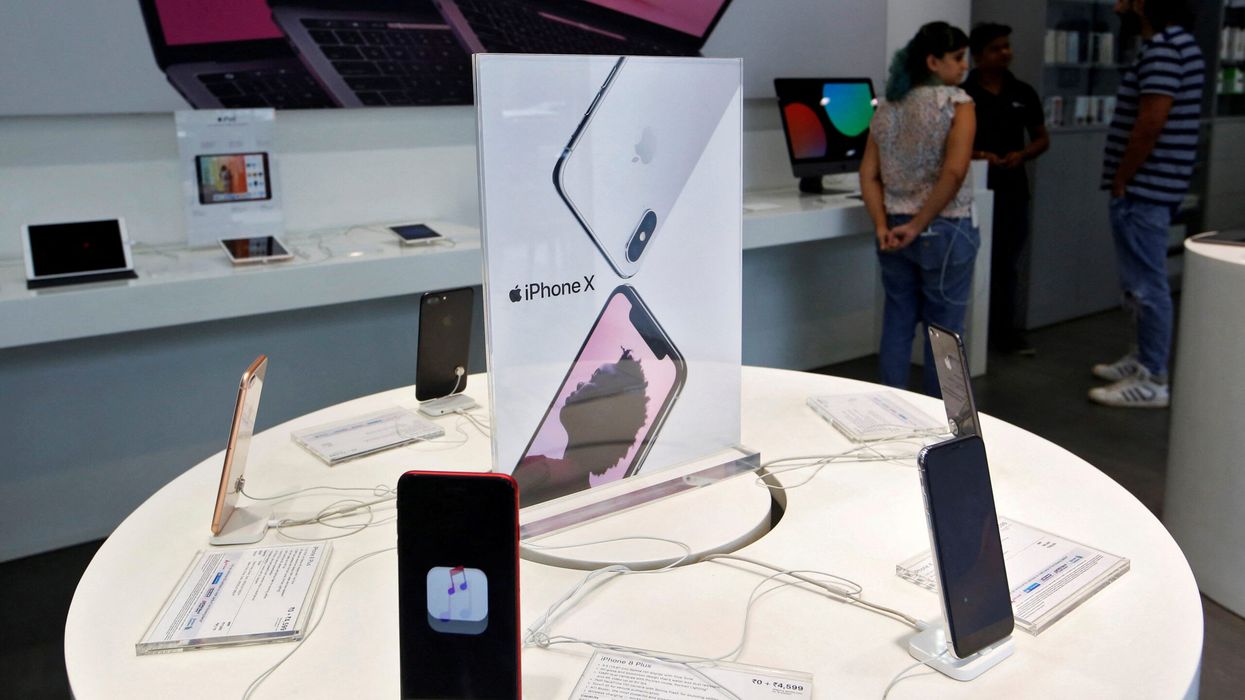AN investigation by India's antitrust body has found that Apple exploited its dominant position in the market for app stores on its iOS operating system, engaging "in abusive conduct and practices", a confidential report seen by Reuters showed.
The Competition Commission of India (CCI) has been investigating Apple since 2021 for possibly abusing its dominant position in the apps market by forcing developers to use its proprietary in-app purchase system.
Apple has denied wrongdoing saying it was a small player in India where phones that use Google's Android system are dominant.
The CCI's investigations unit, in its 142-page report which is not public but was seen by Reuters, said Apple wields "significant influence" over how digital products and services reach consumers, especially through its iOS platform and App Store.
"Apple App Store is an unavoidable trading partner for app developers, and resultantly, app developers have no choice but to adhere to Apple's unfair terms, including the mandatory use of Apple's proprietary billing and payment system," the CCI unit said in the June 24 report.
"From the perspective of app developers, Apple iOS ecosystem is indispensable."
Apple and the CCI did not respond to requests for comment.
The Indian investigation report comes as Apple faces increased antitrust scrutiny in other regions.
In June, European Union antitrust regulators said Apple breached the bloc's tech rules, which could result in a hefty fine for the iPhone maker. The company also faces an investigation into new fees imposed on app developers.
In January, in response to a new EU law called the Digital Markets Act, Apple outlined plans to allow software developers to distribute their apps to users in the European Union outside of Apple's own App Store.
The CCI report is the most critical stage of the Indian investigation and it will now be reviewed by the watchdog's senior officials.
Apple and other parties will be allowed to respond before a final decision is reached, which could include monetary fines as well as directives to change business practices.
The Indian case was first filed by a little-known, non-profit group called "Together We Fight Society" which argued Apple's in-app fee of up to 30 per cent hurts competition by raising costs for app developers and customers.
Later, a group of Indian startups, Alliance of Digital India Foundation, and Tinder-owner Match filed similar cases at the CCI against Apple, which were all heard together.
The CCI investigation team said in its report that no third-party payment processor was being permitted by Apple to provide the services for in-app purchases.
It added that in most cases the apps are also not being allowed to include any external links that direct customers to other purchasing mechanisms, violating Indian competition laws.
Apple's iOS powered about 3.5 per cent of 690 million smartphones in India as of mid-2024, with the rest using Android, according to Counterpoint Research, though it adds Apple's smartphone base in the country has become five times larger in the last five years.
In its submissions to the CCI, Apple argued its market share in India is an "insignificant" 0-5 per cent, while Google commands 90-100 per cent. The company also argued that the in-app payment system allowed it to maintain and develop the safety of its App Store.
But the CCI said, "App stores are OS (operating system) specific and Apple's App store is the sole App store available for reaching iOS users."
"The payment policy of Apple adversely affects the app developers, users and other payment processors," it said.
The CCI report showed it considered comments from many companies including Microsoft, Uber and Amazon during its Apple investigation.
Google too has faced CCI's heat for its in-app payments mechanism.
In October 2022, the CCI imposed a $113 million fine on Google and said it must allow the use of third-party billing and stop forcing developers to use its in-app payment system. Google has challenged the decision.
(Reuters)





